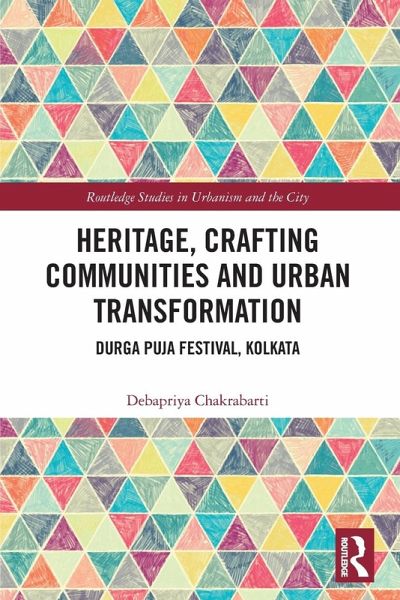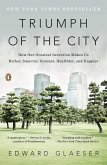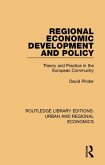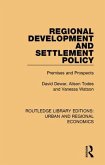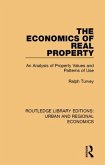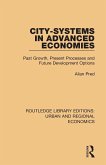Debapriya Chakrabarti
Heritage, Crafting Communities and Urban Transformation
Durga Puja Festival, Kolkata
Debapriya Chakrabarti
Heritage, Crafting Communities and Urban Transformation
Durga Puja Festival, Kolkata
- Broschiertes Buch
- Merkliste
- Auf die Merkliste
- Bewerten Bewerten
- Teilen
- Produkt teilen
- Produkterinnerung
- Produkterinnerung
This book emphasises the need to empower marginalised communities to contribute to decision-making processes within policy realms.
Andere Kunden interessierten sich auch für
![The Advanced Econometrics of Tourism Demand The Advanced Econometrics of Tourism Demand]() Haiyan SongThe Advanced Econometrics of Tourism Demand64,99 €
Haiyan SongThe Advanced Econometrics of Tourism Demand64,99 €![Triumph of the City Triumph of the City]() Edward GlaeserTriumph of the City12,99 €
Edward GlaeserTriumph of the City12,99 €![Informal Work in Developed Nations Informal Work in Developed Nations]() Informal Work in Developed Nations74,99 €
Informal Work in Developed Nations74,99 €![Regional Economic Development and Policy Regional Economic Development and Policy]() David PinderRegional Economic Development and Policy35,99 €
David PinderRegional Economic Development and Policy35,99 €![Regional Development and Settlement Policy Regional Development and Settlement Policy]() David DewarRegional Development and Settlement Policy36,99 €
David DewarRegional Development and Settlement Policy36,99 €![The Economics of Real Property The Economics of Real Property]() Ralph TurveyThe Economics of Real Property57,99 €
Ralph TurveyThe Economics of Real Property57,99 €![City-systems in Advanced Economies City-systems in Advanced Economies]() Allan PredCity-systems in Advanced Economies53,99 €
Allan PredCity-systems in Advanced Economies53,99 €-
-
-
This book emphasises the need to empower marginalised communities to contribute to decision-making processes within policy realms.
Hinweis: Dieser Artikel kann nur an eine deutsche Lieferadresse ausgeliefert werden.
Hinweis: Dieser Artikel kann nur an eine deutsche Lieferadresse ausgeliefert werden.
Produktdetails
- Produktdetails
- Verlag: Taylor & Francis
- Seitenzahl: 164
- Erscheinungstermin: 30. Januar 2025
- Englisch
- Abmessung: 234mm x 156mm x 10mm
- Gewicht: 272g
- ISBN-13: 9781032376509
- ISBN-10: 1032376503
- Artikelnr.: 72542195
- Herstellerkennzeichnung
- Libri GmbH
- Europaallee 1
- 36244 Bad Hersfeld
- gpsr@libri.de
- Verlag: Taylor & Francis
- Seitenzahl: 164
- Erscheinungstermin: 30. Januar 2025
- Englisch
- Abmessung: 234mm x 156mm x 10mm
- Gewicht: 272g
- ISBN-13: 9781032376509
- ISBN-10: 1032376503
- Artikelnr.: 72542195
- Herstellerkennzeichnung
- Libri GmbH
- Europaallee 1
- 36244 Bad Hersfeld
- gpsr@libri.de
Debapriya Chakrabarti is a researcher in the field of urban studies at the Manchester Institute of Innovation Research and teaches at the Manchester School of Architecture. She is trained as an architect and urban planner. Her research interests lie at the intersection of urban regeneration, cultural industries, and place-based development policies.
Lists Of FiguresList Of TablesPrefaceAcknowledgement Chapter 1 Durga Puja,
Kumartuli and KolkataFestival, religion, culture, and politicsColonial
Calcutta's Durga PujaBarowari brought inclusivityCultural heritage,
informality, and idol-crafting practiceStructure of the bookChapter 2
Crafts and Practitioners Idol crafting practice and sustainability
Kumbhakar caste relates to pottery The Caste-based potters' para Interwoven
communities of practice Emerging actors and shiftsChapter 3 The spaces of
production The neighbourhood Streetscapes, alleys, riverfront The
conventional workshop-residence The 'factory-shed' workshopChapter 4
Seasonal adaptations and everyday negotiation The preparation phase
Adaptation, accommodations, and negotiationsInfrastructural disrepair and
hopelessnessSocial cohesion, coordination, and competitionWill Kumartuli
continue to thrive?Chapter 5 Complexities The redevelopment plan Reaction
and resistance to the KMDA plan Tenure and ownership: realities Informality
in the heritageChapter 6 The emerging and diverging spaces of production
Kumartuli on a regular day Changing spaces: Repurposed workshop Agency and
new typologies Appropriation and socio-spatial relations Spatial
flexibility and reparation in a Kolkata bastiChapter 7 Kumartuli's future?
Kumartuli's present Reparations and public services Contributions and
implications of this research Recommendations Personal reflection
Methodological Appendix: Research Strategies Practice Theory research
method FieldworkGlossary of Bengali wordsIndex
Kumartuli and KolkataFestival, religion, culture, and politicsColonial
Calcutta's Durga PujaBarowari brought inclusivityCultural heritage,
informality, and idol-crafting practiceStructure of the bookChapter 2
Crafts and Practitioners Idol crafting practice and sustainability
Kumbhakar caste relates to pottery The Caste-based potters' para Interwoven
communities of practice Emerging actors and shiftsChapter 3 The spaces of
production The neighbourhood Streetscapes, alleys, riverfront The
conventional workshop-residence The 'factory-shed' workshopChapter 4
Seasonal adaptations and everyday negotiation The preparation phase
Adaptation, accommodations, and negotiationsInfrastructural disrepair and
hopelessnessSocial cohesion, coordination, and competitionWill Kumartuli
continue to thrive?Chapter 5 Complexities The redevelopment plan Reaction
and resistance to the KMDA plan Tenure and ownership: realities Informality
in the heritageChapter 6 The emerging and diverging spaces of production
Kumartuli on a regular day Changing spaces: Repurposed workshop Agency and
new typologies Appropriation and socio-spatial relations Spatial
flexibility and reparation in a Kolkata bastiChapter 7 Kumartuli's future?
Kumartuli's present Reparations and public services Contributions and
implications of this research Recommendations Personal reflection
Methodological Appendix: Research Strategies Practice Theory research
method FieldworkGlossary of Bengali wordsIndex
Lists Of FiguresList Of TablesPrefaceAcknowledgement Chapter 1 Durga Puja, Kumartuli and KolkataFestival, religion, culture, and politicsColonial Calcutta's Durga PujaBarowari brought inclusivityCultural heritage, informality, and idol-crafting practiceStructure of the bookChapter 2 Crafts and Practitioners Idol crafting practice and sustainability Kumbhakar caste relates to pottery The Caste-based potters' para Interwoven communities of practice Emerging actors and shiftsChapter 3 The spaces of production The neighbourhood Streetscapes, alleys, riverfront The conventional workshop-residence The 'factory-shed' workshopChapter 4 Seasonal adaptations and everyday negotiation The preparation phase Adaptation, accommodations, and negotiationsInfrastructural disrepair and hopelessnessSocial cohesion, coordination, and competitionWill Kumartuli continue to thrive?Chapter 5 Complexities The redevelopment plan Reaction and resistance to the KMDA plan Tenure and ownership: realities Informality in the heritageChapter 6 The emerging and diverging spaces of production Kumartuli on a regular day Changing spaces: Repurposed workshop Agency and new typologies Appropriation and socio-spatial relations Spatial flexibility and reparation in a Kolkata bastiChapter 7 Kumartuli's future? Kumartuli's present Reparations and public services Contributions and implications of this research Recommendations Personal reflectionMethodological Appendix: Research Strategies Practice Theory research method FieldworkGlossary of Bengali wordsIndex
Lists Of FiguresList Of TablesPrefaceAcknowledgement Chapter 1 Durga Puja,
Kumartuli and KolkataFestival, religion, culture, and politicsColonial
Calcutta's Durga PujaBarowari brought inclusivityCultural heritage,
informality, and idol-crafting practiceStructure of the bookChapter 2
Crafts and Practitioners Idol crafting practice and sustainability
Kumbhakar caste relates to pottery The Caste-based potters' para Interwoven
communities of practice Emerging actors and shiftsChapter 3 The spaces of
production The neighbourhood Streetscapes, alleys, riverfront The
conventional workshop-residence The 'factory-shed' workshopChapter 4
Seasonal adaptations and everyday negotiation The preparation phase
Adaptation, accommodations, and negotiationsInfrastructural disrepair and
hopelessnessSocial cohesion, coordination, and competitionWill Kumartuli
continue to thrive?Chapter 5 Complexities The redevelopment plan Reaction
and resistance to the KMDA plan Tenure and ownership: realities Informality
in the heritageChapter 6 The emerging and diverging spaces of production
Kumartuli on a regular day Changing spaces: Repurposed workshop Agency and
new typologies Appropriation and socio-spatial relations Spatial
flexibility and reparation in a Kolkata bastiChapter 7 Kumartuli's future?
Kumartuli's present Reparations and public services Contributions and
implications of this research Recommendations Personal reflection
Methodological Appendix: Research Strategies Practice Theory research
method FieldworkGlossary of Bengali wordsIndex
Kumartuli and KolkataFestival, religion, culture, and politicsColonial
Calcutta's Durga PujaBarowari brought inclusivityCultural heritage,
informality, and idol-crafting practiceStructure of the bookChapter 2
Crafts and Practitioners Idol crafting practice and sustainability
Kumbhakar caste relates to pottery The Caste-based potters' para Interwoven
communities of practice Emerging actors and shiftsChapter 3 The spaces of
production The neighbourhood Streetscapes, alleys, riverfront The
conventional workshop-residence The 'factory-shed' workshopChapter 4
Seasonal adaptations and everyday negotiation The preparation phase
Adaptation, accommodations, and negotiationsInfrastructural disrepair and
hopelessnessSocial cohesion, coordination, and competitionWill Kumartuli
continue to thrive?Chapter 5 Complexities The redevelopment plan Reaction
and resistance to the KMDA plan Tenure and ownership: realities Informality
in the heritageChapter 6 The emerging and diverging spaces of production
Kumartuli on a regular day Changing spaces: Repurposed workshop Agency and
new typologies Appropriation and socio-spatial relations Spatial
flexibility and reparation in a Kolkata bastiChapter 7 Kumartuli's future?
Kumartuli's present Reparations and public services Contributions and
implications of this research Recommendations Personal reflection
Methodological Appendix: Research Strategies Practice Theory research
method FieldworkGlossary of Bengali wordsIndex
Lists Of FiguresList Of TablesPrefaceAcknowledgement Chapter 1 Durga Puja, Kumartuli and KolkataFestival, religion, culture, and politicsColonial Calcutta's Durga PujaBarowari brought inclusivityCultural heritage, informality, and idol-crafting practiceStructure of the bookChapter 2 Crafts and Practitioners Idol crafting practice and sustainability Kumbhakar caste relates to pottery The Caste-based potters' para Interwoven communities of practice Emerging actors and shiftsChapter 3 The spaces of production The neighbourhood Streetscapes, alleys, riverfront The conventional workshop-residence The 'factory-shed' workshopChapter 4 Seasonal adaptations and everyday negotiation The preparation phase Adaptation, accommodations, and negotiationsInfrastructural disrepair and hopelessnessSocial cohesion, coordination, and competitionWill Kumartuli continue to thrive?Chapter 5 Complexities The redevelopment plan Reaction and resistance to the KMDA plan Tenure and ownership: realities Informality in the heritageChapter 6 The emerging and diverging spaces of production Kumartuli on a regular day Changing spaces: Repurposed workshop Agency and new typologies Appropriation and socio-spatial relations Spatial flexibility and reparation in a Kolkata bastiChapter 7 Kumartuli's future? Kumartuli's present Reparations and public services Contributions and implications of this research Recommendations Personal reflectionMethodological Appendix: Research Strategies Practice Theory research method FieldworkGlossary of Bengali wordsIndex

